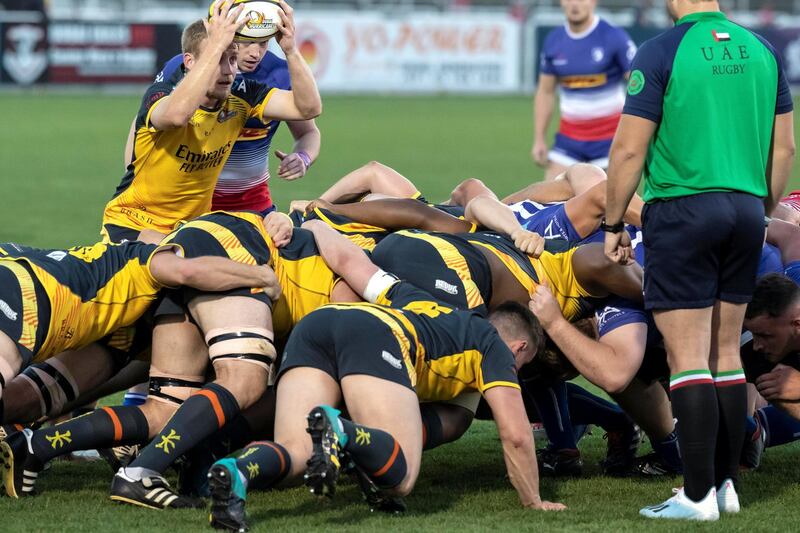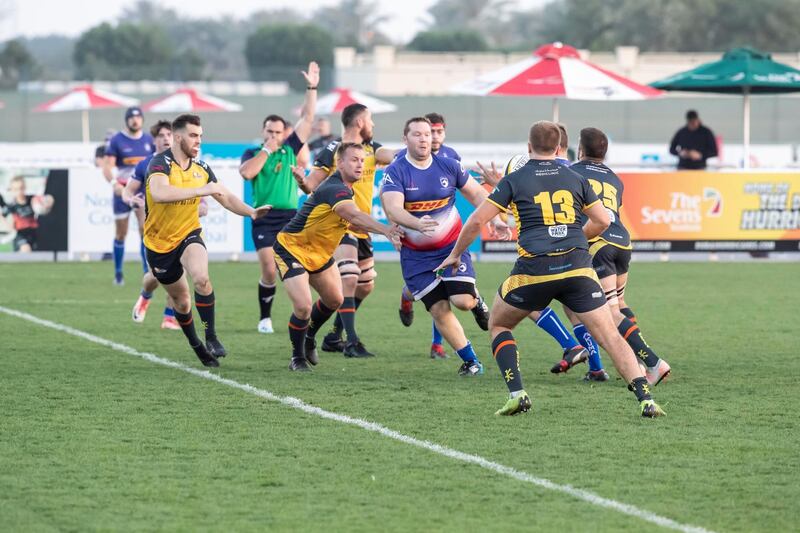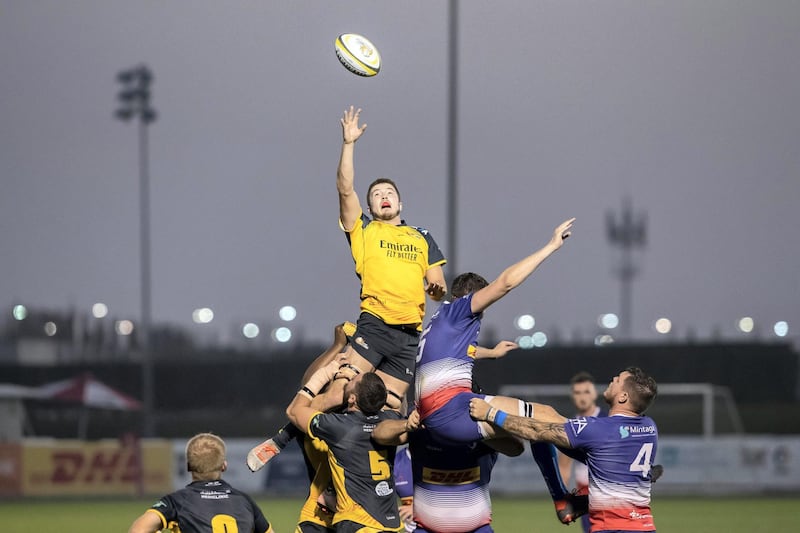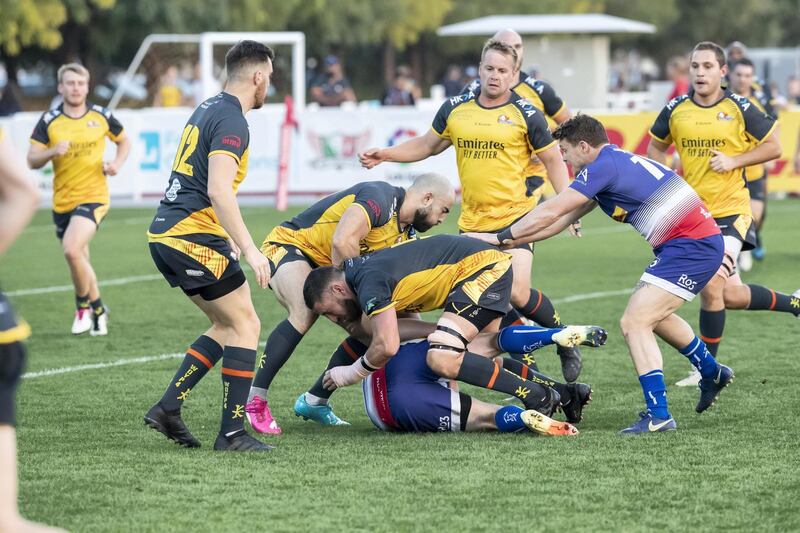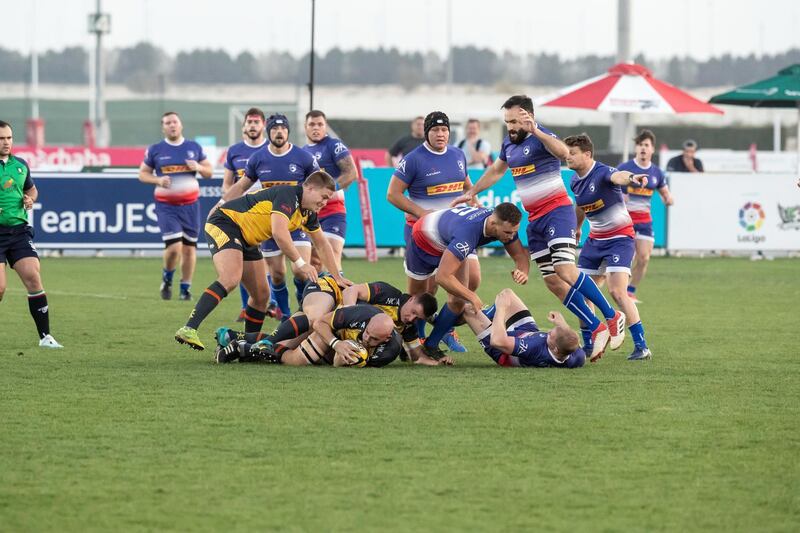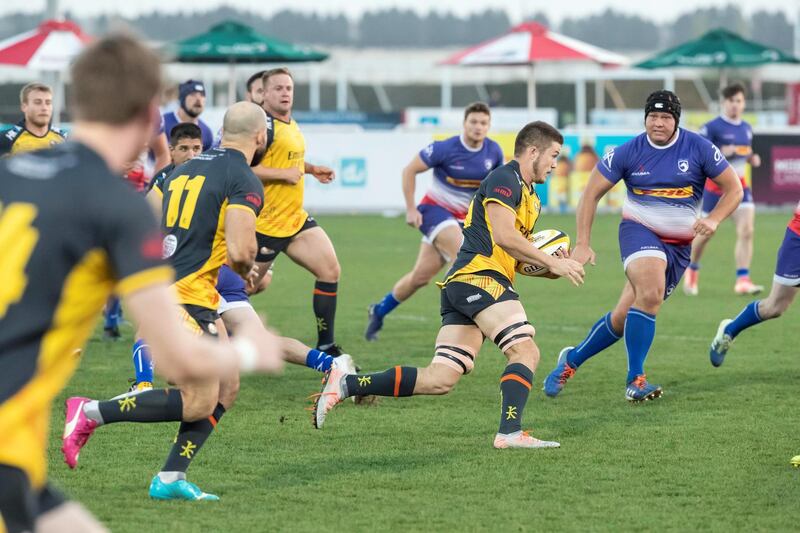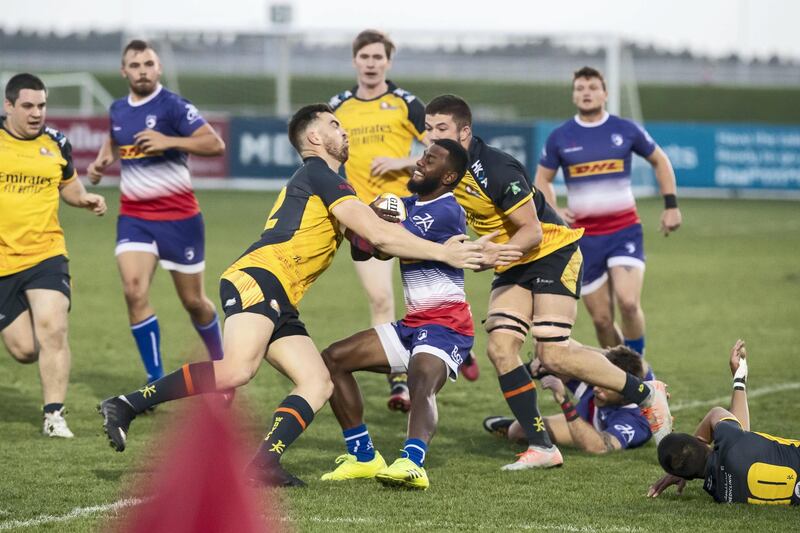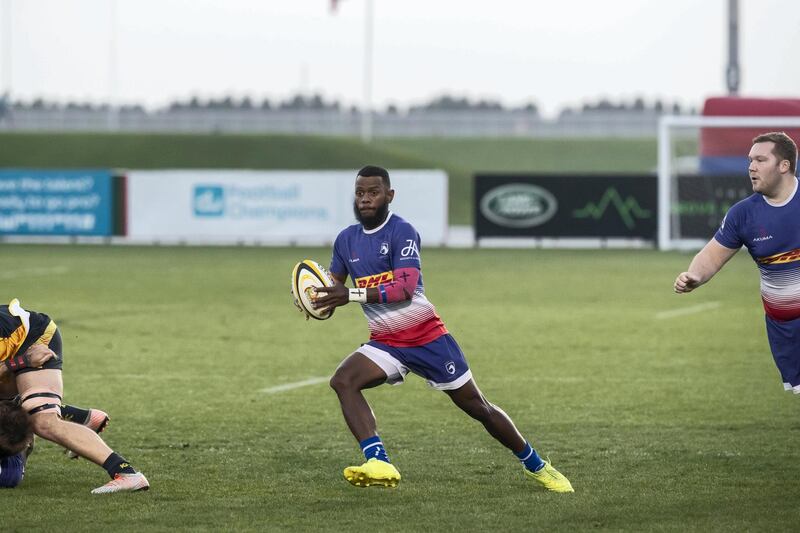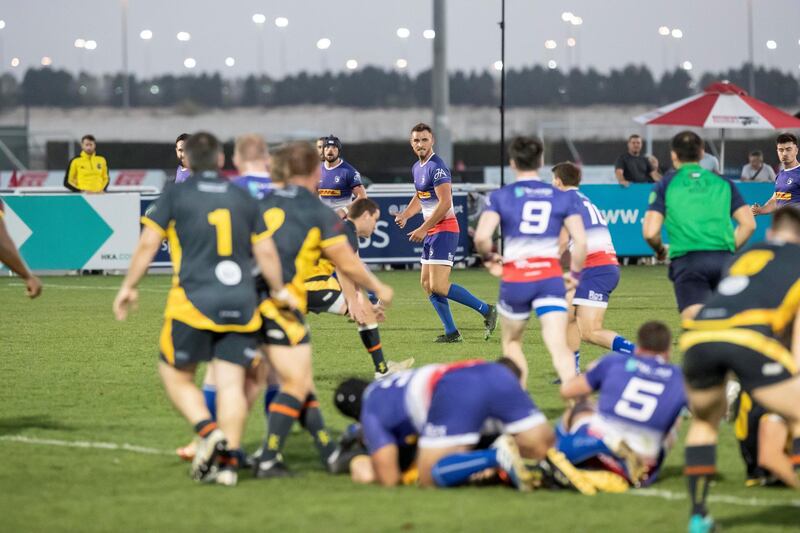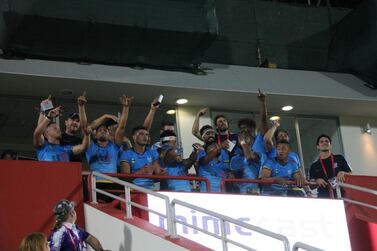Rugby clubs in the UAE have been issued with a 27-page document of return to play safety guidelines.
The UAE Rugby Federation called a halt to the domestic rugby season back at the start of March, just before its finals days could take place.
At the end of May, rugby was among the sports given a brief advisory on what was permitted when the Dubai Sports Council announced the re-opening of sports after the coronavirus outbreak.
That included group coaching with a maximum of 10 participants per session, as well as “no spitting on the ground”, and players being required to bring their own equipment.
With clubs now beginning their preparations for the new season – which is hoped to start at the end of September – the federation have marked out a detailed list of protocols to follow.
“The guidance provided should be considered mandatory for UAE rugby clubs and national teams, and advisory for school rugby who should also be guided by their governing bodies,” the federation said.
“The return to activity should be no more than 50 per cent of normal capacity, with sessions not to exceed 60 minutes.
“We will aim to update within 30 days when we can move to the next phase which eases the participation levels and give more chance to players’ performance progression.”
The guidelines have been created by the UAERF Medical Committee, which is headed by Dr Alan Kourie, who was formerly part of the South Africa national team's medical staff, as well as the Natal Sharks Super Rugby franchise.
They match the general Covid medical guidelines, but with rugby-specific details such as mouthguards only being removed during water and sanitisation breaks at training sessions, and players showering at home.
The players also “must not blow their nose on the field – tissues will be provided at specific stations at the side of the field,” according to the guidelines.
“Masks will be worn by all attendees at training sessions, except where practically not possible, for example when exercising at high intensity,” the report says.
“For ease of reference, this can be considered as exercise that results in sustained heavy breathing to a point where it becomes challenging for the athlete to breathe comfortably were a mask to be worn.
“It is advisable that a medical waste bin be provided at the training venue, in close proximity to the training area, for masks to be disposed of correctly.
“While the UAE’s Covid prevention measures remain in place, all non-playing staff present at rugby training/matches should be wearing a mask at all times.”
The protocols also say rugby balls should be sanitised “as often as possible,” ideally at the same time as water and sanitisation breaks every 15 minutes during a training session, which matches guidelines for training in the heat.
“There should be 2-3 sanitization stations depending on the number of groups training, where players can take water from their own water bottles and can sanitise their own hands,” the report states.
“Social distancing should continue to be strictly adhered to at these times.
“The training balls can be sanitised during this time. Balls will again be sanitised pre- and post-training.
“There must be no physical contact at any time, including with greetings, except during contact training and matches (when this has been officially sanctioned).
“Rest times should adhere to the two-metre social distancing rules. Breaks in practice or play are seen as rest times.”
